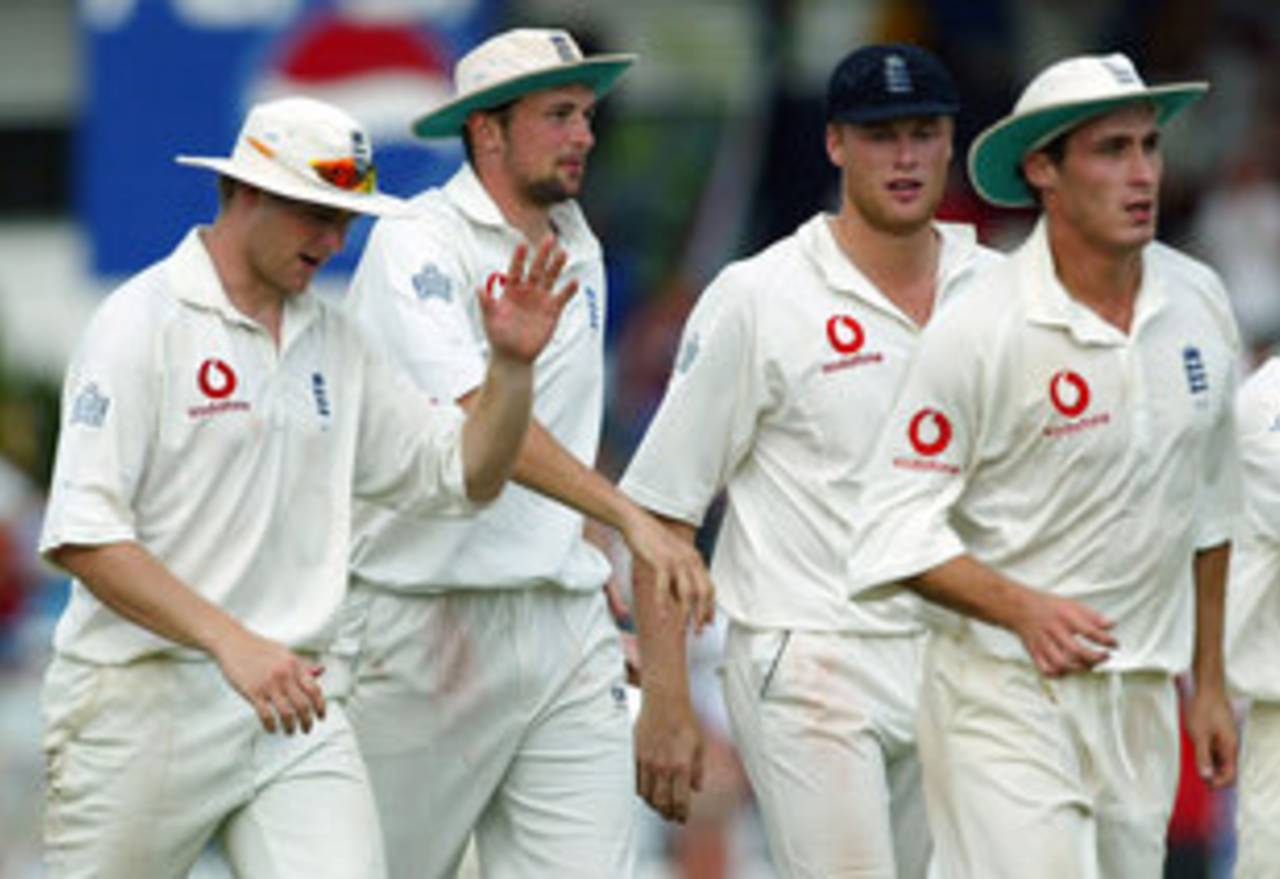The Fantastic Four
Remembering the glorious summer of 2005, when Hoggy, Harmy, Jonah, and Fred carried England to a rare state of euphoria

A pace quartet without compare in English cricket • Getty Images
To appreciate what those bowlers achieved in that series we must recall how England wallowed in the misery of those previous 16 years; how English cricketers lost the will to live when Australians touched down
Mark Nicholas, the former Hampshire captain, presents the cricket on Channel 9 in Australia and Channel 5 in the UK